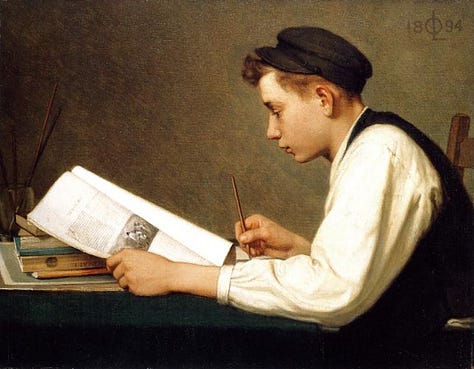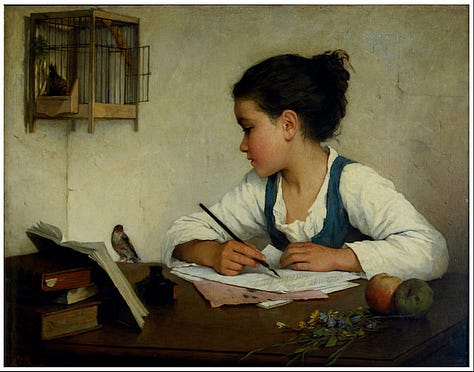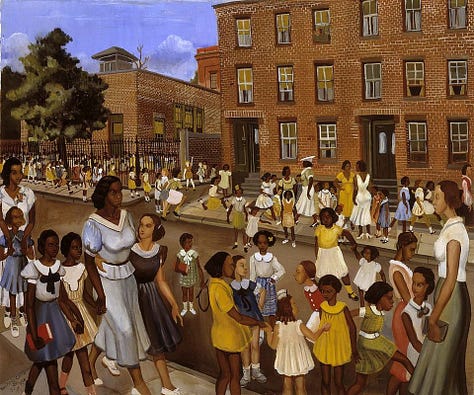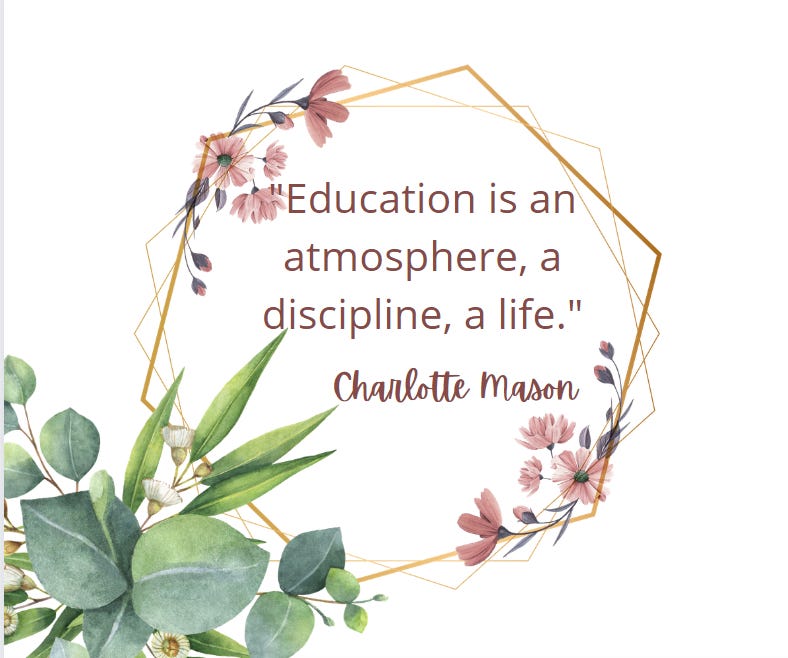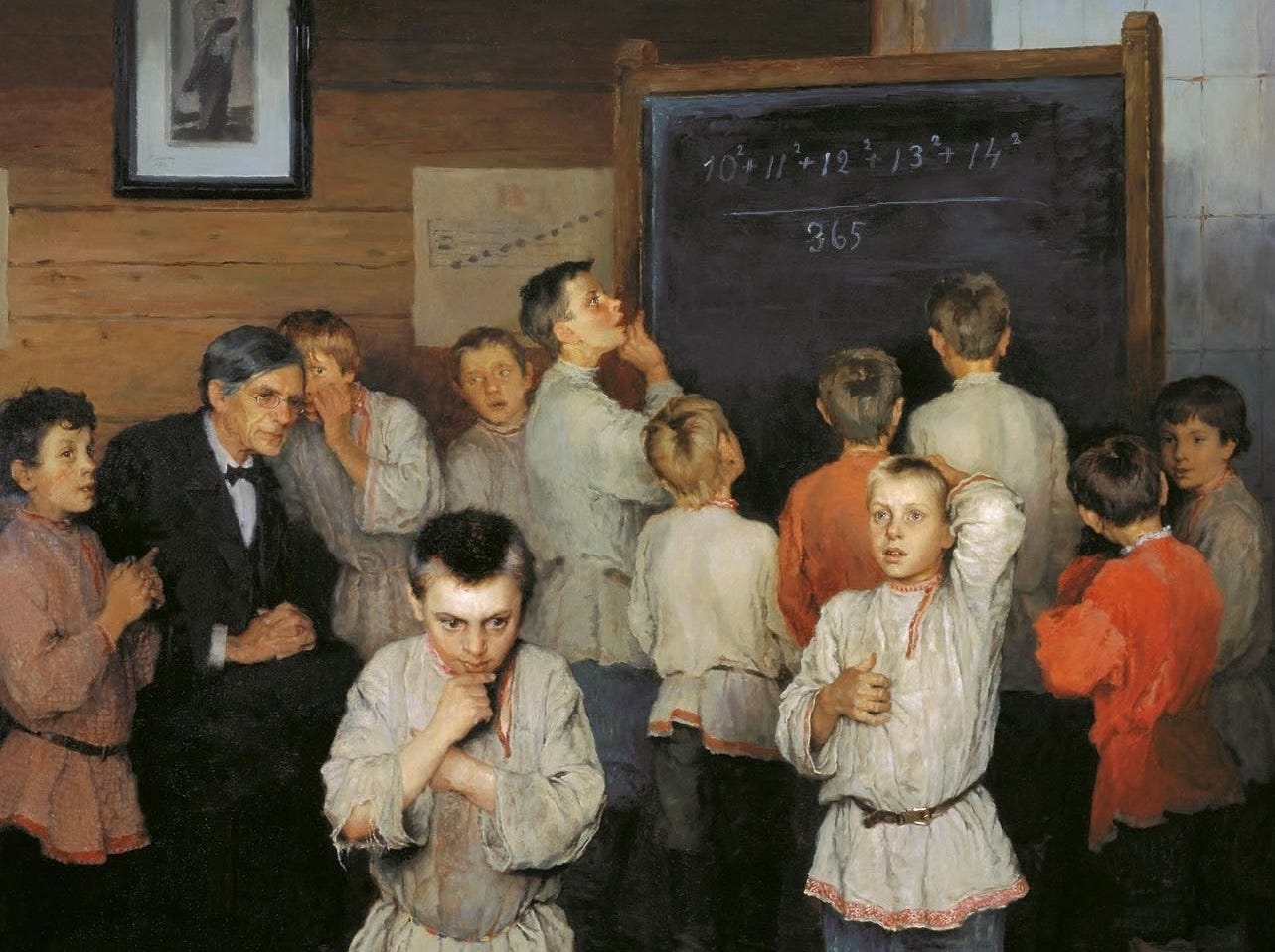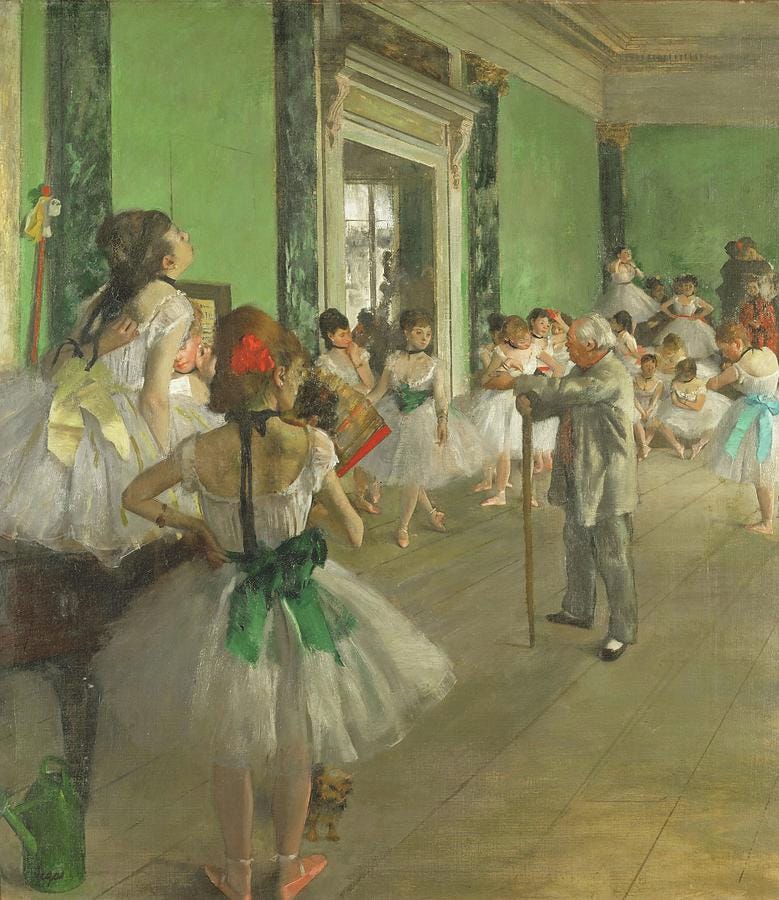The Struggling Classical Student
There are the students who lead classes naturally. The student whose hand is shooting up before you finish the sentence. The student who is prepared and bright, and ready to launch ahead, and who can speak in detail for five minutes. The student who is the deep thinker, who has profound answers, and is possibly already far ahead of the teacher in some ways…and probably could ask an even more profound question as he mulls over the intellectual possibilities. The student gifted with a wealth of common sense and clarity, who sees through the fog confusing her peers, and who calmly makes a statement that clarifies everything for all of her class. You know that kind of answer - the instant lifting of eyebrows and the sighs and exclamations of “Oooooh! Oh my gosh! OK, I GET IT!” often followed by laughter and a communal sense of relief.
Those students. We love them!
But what about the shy student? The quiet student. The one who is not as interested or engaged. The student who finds these materials challenging, perhaps overwhelming, or anxiety-inducing? The student who is in over his head. The student who replies in a halting manner, or starts, hesitates, gives up and murmurs, “Never mind.” The student who just shrugs, “I dunno.” The student who doesn’t really care. The student who views the class in a utilitarian manner, and perhaps even says so. I once had a student tell me on the first day of school, “Please don’t take offense, Mrs. Smith, I am not interested in this class, but I know I have to take it and I will do my best, but please understand if I am just not as into things. I am a physics guy, I will need that class for my career, and I can’t wait to take it.” The student who reads a literature book during class because this class is “not my jam.”
Do such students have a place in a classical school?
These, most especially, should be in a classical school!
Engage and Differentiate
A classical education is for every student, not just the elite, engaged, brightest few. It is our task to engage and differentiate, and a classical education done properly does this better than any other form of education. Schools often claim to differentiate, but ultimately track students by GPA, SAT and standardized scores, box by category, and ability. It is a dehumanizing system that often forms the cliques of the elite AP students vs the “sped” students - some of whom rebel against this system by misbehaving and making their mark in less stellar ways.
To paraphrase Stratford Caldecott, classical classroom learning is a communal activity developed in relationships and dialogue, in a place that fosters a spirit of mutual respect and shared inquiry. Ultimately, education must primarily consider the dignity of the human person, and the teacher must help each student realize their potential. A classical education is not about creating the best, the toughest, the most rigorous, and demanding form of schooling, with excessive homework and ‘rigor.’ Such a school is a joyless enterprise with little but pride propping it up - and as Chesterton so wisely pointed out, the devil fell due to the force of gravity.
A classical education includes every student and type of learner because the education is a holistic one that forms the heart, mind, and soul. A standardized test means less than character, perseverance, and a joyful soul.
What does that look like, practically speaking, for a teacher?
Begin with engagement. Be excited about the topic and joyful about every student in the class! The teacher makes all the difference in that regard. Bring in the sheer joy and delight about the materials into the class, and show students that Algebra, Physics, Art, or Literature are truly fascinating. But also show James and Sarah, Ashlyn, Chrystian, and Zeke that it is wonderful that they are there. They matter - especially if they are shy, struggling, hyperactive, challenging, or depressed. You are not a counselor, and it is not your task to ‘fix’ their problems, but it is your task to include them and make them feel welcome. Your expectations of engagement and inclusion will do a great deal to help that challenged learner. It will also help those bright and vivacious students who do not struggle learn how to include all others, and love their neighbor, no matter his GPA.
Maintain the engagement by considering the purpose of the class. If you expect every student to love the subject and master every intricate detail, it will be hard to bring every student on board. If students are valued by their grades, the point has been lost. Value effort and determination, and teach the joy of learning instead. Teach the bigger picture of a subject and its ultimate purpose. Enjoy diversions, but don’t kill the topic by getting lost in the weeds and rabbit trails. Many a teacher who is too passionate about the details because it is almost his personal intellectual hobby has forever quashed the flame for his students. At the end of the class, will it matter if a student can recite the periodic table or do stoichiometry, or that he can explain how chemistry works in general, or tell the wondrous story of the atom? Does it matter more in June if a student can explain the circle of fifths perfectly, or if she can harmonize in choir? Some students will know the intellectual details perfectly - and that is excellent. The struggling student with auditory processing disorder, ADHD, dyslexia, and anxiety is not ‘less than’ because she can’t ace the test, if she can recount the story of Beowulf, join in a classroom debate about the implementation of the Magna Carta, and excitedly explain chemiluminescence. In fact, that student may well remember the important details long after the A student has forgotten how to do Algebra.
Be creative.
Get students to act out scenes in history, debate the what-ifs, become characters in literature, and do labs in science. It is a modern invention for students to sit for hours at desks regurgitating data. The Ancients paced in the forums, debated, drew in the sand, and gazed intently at the stars.
In Literature, read the books! Flannery O’Connor spoke of the “mystery and manners” of literature, and we have all too often reduced the greatest stories of humanity to a sequence of facts to be quizzed on a multiple-choice test. Maintain the mystery! Allow students to come to enjoy and love the great stories - read them out loud, make time for quiet reading in class, and engage with the stories - always moving on. Remaining in one place for too long leads to stagnation and trench-foot. That creativity inspires the advanced student, and helps the ADHD student or the disinterested one who considers the class “not my jam” become part of the class almost whether or not they want to.
Make time for wonder, for scholé. After all, education is not meant to be utilitarian - make time in every class to pause, to wonder, and for the soul to grow. It is in those moments of profound wonder in the classroom that students can leave the self behind and, for a moment, realize the spiritual realm that awaits our exploration just one thought and soul moment away. These moments exist in every subject, not just in philosophy or theology. Geometry is beautiful, algebra is profound, history and music reveal truths about our humanity. The constant rush and crush of content is neither necessary nor helpful - maintaining a high bar does not mean overloaded content. At the end of a life, the question will not be about the Pythagorean theorem, but rather - did you love your neighbor?
That also means - do not overload students with either excessive classes or homework. It helps no one, and is part of the overwhelming number of students breaking down today. There are other reasons, too, of course, but we are asking too much of our students too soon, too often, and with a pressure to succeed and be perfect that leads to mental breakdowns, eating disorders, depression, and far worse. Give our students goodness, truth, and beauty in a measured, reasonable dosage, and allow them to grow as they were meant to…
Returning again to the practical - once engagement is a given, differentiate.
Differentiate.
Not everyone learns in the same way. Some students panic at having to present, and others can’t wait to flex their intellectual muscles. The teacher must learn to discern how to nurture the struggling seedling, strengthen the weak, and temper the strong.
Differentiate so that every student can experience that moment of wonder. Scaffold questions so that everyone can participate to some degree. Then, don’t allow the dominant few to hold the floor every time. Instead of asking a general question that calls for raised hands, ask direct questions. Begin the question series with a simpler question for the struggling student that you know she can answer. Perhaps you have even asked that student to prepare an answer in advance, and when she gives an answer, the experience is a positive one for her. Then ask another, related question of someone else. Build your questions until the toughest metaphysical questions are asked of the student for whom this is the greatest delight. The student for whom this topic is the most challenging has now had a positive experience, and can gradually grow in confidence.
Help the shy student by asking her if you can read her answer out loud.
Some of the most beautiful moments I have personally experienced in the classroom have been when multiply disabled students have paired with some of the most advanced students in class, and worked on labs together, or presented history skits as a team. The disabled student experienced the delight and pride of being with the top student in the class, and the advanced student learned to include and delight in the abilities and talents of his classmate.
Take the paper, lab results, or drawing of the disinterested student, and point out where the student has excelled - nurture pride in work done well, in doing the task well for its own sake.
Allow the ADHD student to stand while working, in exchange for an expectation of an excellent reply, and you will often be surprised at the quality of the answer. Let them juggle with scarves in the hallway, knit, or draw, or even listen to music while writing - letting them do so will allow them to listen and absorb far better, making for an interested and active student.
Let the student struggling with depression engage separately, or bring a fleece for comfort.
Let a dyslexic student listen to an audiobook and record a response - this is not ‘less than’ in any way! (A teacher who once argued this point with me, finally acquiesced when I asked what he would have a blind student do.) Just this past year, a dyslexic student who listened to “A Tale of Two Cities” was just as excited and engaged in the classroom discussion as those who had read the physical book, and no one was the wiser.
If a classical education is primarily about the human person, then such accommodations are a given, not a point to be argued.
None of these should disrupt a classroom or hinder the flow of learning, they enhance it! I love these students most especially - this is where teaching means the most.
Character
Finally, in spite of all of the above, it is also OK if a student does not like a particular book or assignment. They should learn to do the task anyway, that is part of the formation of character, grit, perseverance, and the soul. While a classical education should nurture, encourage, grow, develop wonder, and an awareness of the presence of God in all things - it does also shape character. Sometimes, that means not liking something and doing it anyway, and doing it to the best of one’s ability. A teacher can make a class engaging, interesting, and interactive - but if a student has decided not to engage, do even minimal work, or ignore deadlines, that is a heart issue, which must be addressed separately. The student who habitually overloads, takes on too much, has too many extracurriculars, and consequently struggles academically (and often also mentally, socially, or spiritually), must also learn how to balance it all out. Ultimately, every student must learn personal discipline, and not only wait for inspiration and wonder.
And that is a topic for another time.
For now, let us engage, bring wonder into the classroom, and differentiate. Human beings are designed to want to learn. Let us bring this learning to our classrooms and home schools infused with wonder and expectation. This is not exceptional, this is merely truly classical. In the words of Charlotte Mason, “Education is an atmosphere, a discipline, and a life!”
